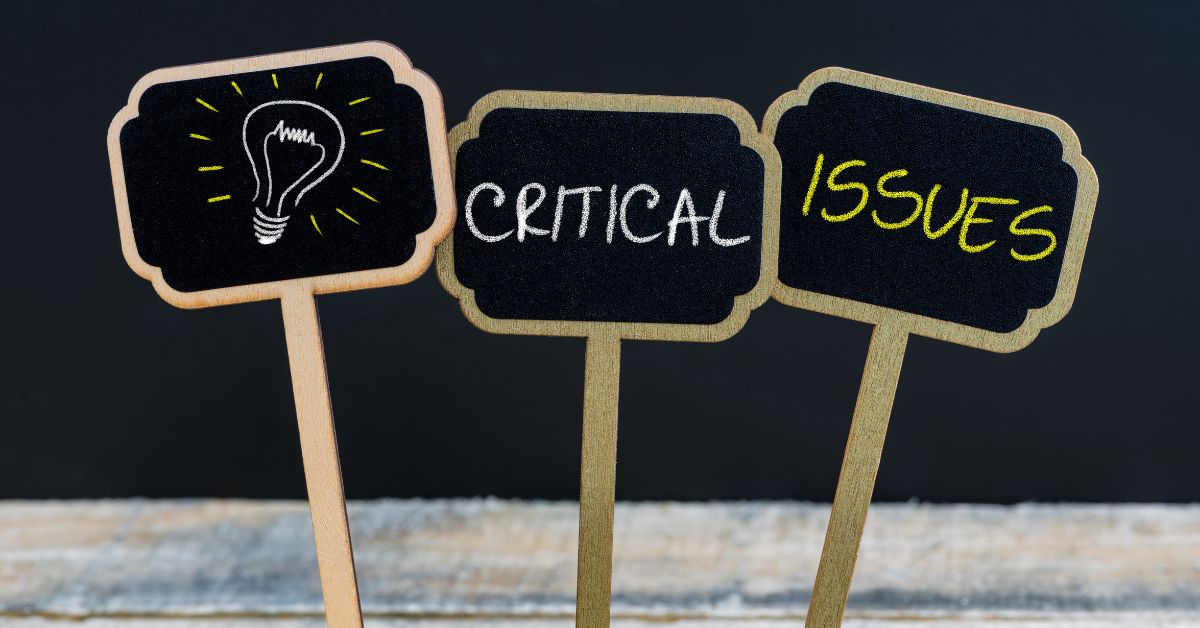Being parents, we can understand your level of happiness when sending young adults or children off to college or university. It is the board’s responsibility to offer the necessary monitoring to guarantee that the institution provides them with an education.
Also, the institutes will prepare students for an independent life and a satisfying career when they enter the world as fully-fledged adults.
The purpose of higher education boards is to be responsible for ensuring students’ security of their personal information, fair treatment, and compliance with the laws. However, every higher education institution must be proactive and prepared to identify and resolve any legal risk that arises and endangers a student’s health and well-being.
This blog necessitates a thorough awareness of the top nine legal issues in higher education.
Here are the Nine Major Legal Considerations
1. Title IX Compliance
The Educational Amendments of 1972 ban gender prejudice in government-sponsored educational programs or activities. According to the United States Department of Education (ED), these agencies encompass approximately 7,000 postsecondary institutions.
Compliance with Title IX requirements, including handling cases of sexual harassment and assault, is a significant legal concern for colleges and universities.
Legal issues higher education institutions have Title IX requirements in the following significant subjects:
- Recruitment, Admissions, and Counseling
- Athletics
- Financial support.
- Sex-based harassment
- Discipline
- Treatment for pregnant and parenting students
- Single-sex education
- Career Support
2. Accommodation of Disabilities
Colleges and universities must follow the Americans with Disabilities Act (ADA) and Section 504 of the Rehabilitation Act, which requires institutions to make adequate modifications for students with disabilities to ensure equitable access to education.
To fulfill this criterion, higher education institutions must offer disabled students.
- Equal exposure to buildings, including residential facilities.
- Aids and services are required for efficient communication, such as sign language interpreters or Braille formats.
- Changed rules, methods, and procedures, such as testing accommodations and access to educational facilities for service animals.
Violations of higher education legal issues related to ADA may include being asked to disclose if you have a handicap, being denied entry based on your response, or being excluded from a specific class, program, or activity due to your impairment.
3. Affirmative Action and Diversity Policies
Institutions often face legal challenges related to affirmative action programs and diversity initiatives in admissions and hiring practices. Affirmative action is a group of policies that help members of marginalized communities who have traditionally encountered prejudice, such as minorities and women.
Affirmative action in higher education admissions has been one of the hot topics in higher education debate. Some schools and universities have implemented initiatives to increase the recruitment of racial minorities.
In 2003, the Supreme Court upheld the concept of affirmative action as a practice, but racial quotas for college admissions were ruled illegal.
4. Intellectual Property Rights
These rights pose significant legal issues in higher education due to the innovative and research-intensive nature of academic institutions. Universities have to navigate complex legal frameworks governing patents, copyrights, trademarks, and trade secrets, particularly in terms of rights and monetization of intellectual property created by teachers, students, and staff.
For example, a professor conducting groundbreaking research may generate patentable inventions or copyrightable works, raising questions about ownership rights and potential commercialization opportunities.
Universities must establish clear policies and agreements to address these higher education legal issues, ensuring equitable treatment of stakeholders while facilitating technology transfer and collaboration with industry partners.
Failure to adequately address intellectual property rights can lead to disputes, hinder innovation, and undermine the institution’s ability to maximize the value of its intellectual assets.
5. Privacy and Data Security
Higher education has unique legal data security and privacy problems. In a setting where operations are frequently dispersed, one of the most difficult issues may simply be mapping the extensive quantity and variety of personal information that the institution generates, receives, retains, and sends.
While colleges and universities rely increasingly on technologies to acquire and preserve personal information, data handling policies and processes may differ across functional areas. The various data privacy rules and regulations are hot topics in higher education to which institutions may be subject, adding to the complexity.
For example, colleges and universities that accept governmental assistance from the Department of Education are bound to the Family Educational Rights and Privacy Act, which preserves the confidentiality of students’ education data.
HIPAA may have an impact on university health clinics and research projects that use people’s health information. NIST 800-171, which addresses federal Controlled Unclassified Information, is a new area of ambiguity.
Colleges and universities may additionally be obliged to comply with various state data privacy and breach reporting regulations. If you need further assistance, check our website for higher education consulting.
6. Freedom of Speech and Academic
Section 43 of the Education (No. 2) Act of 1986 requires universities and colleges to promote and enable legitimate free expression within their institutions.
This provision mandates that these institutions must take practical steps to ensure that members, including students, staff, and visiting speakers, have access to free speech rights that comply with the law.
Moreover, universities and colleges are required to establish, enforce, and regularly update a free speech code of practice for these legal issues in higher education.
This code outlines the institution’s commitment to promoting and protecting free speech while also providing guidelines on how free speech should be exercised that respects the rights and dignity of others and complies with legal requirements.
It serves as a framework for maintaining an open and inclusive academic environment while balancing the rights and responsibilities associated with free expression.
Compliance with Section 43 helps institutions fulfill their legal obligations regarding free speech and fosters a culture of robust intellectual discourse and debate within the academic community.
7. Labor and Employment Law
Universities and colleges must comply with federal and state laws governing wage and hour regulations, employment discrimination, labor union activities, faculty tenure, and promotion policies, among others.
For example, disputes may arise over faculty tenure decisions or allegations of discrimination in hiring practices, requiring institutions to navigate complex legal frameworks and procedural requirements. Additionally, compliance with regulations such as the Fair Labor Standards Act (FLSA) and the National Labor Relations Act (NLRA) is essential to ensure fair treatment of employees and avoid such legal issues higher education.
Higher education institutions often face unique challenges in balancing academic freedom and faculty rights with labor and employment law requirements, necessitating careful attention to legal compliance and effective management of personnel matters.
8. Student Rights and Responsibilities
Current legal issues in education 2023 included that colleges and universities must balance the rights of students with the institution’s academic mission and legal obligations. Institutions must ensure that students have access to educational opportunities free from discrimination and harassment while also maintaining a safe and inclusive campus environment.
For example, colleges must comply with laws such as the Family Educational Rights, which safeguards the privacy of student education records, and Title IX, which prohibits sex-based discrimination and harassment.
Institutions must establish and enforce codes of conduct outlining students’ rights and responsibilities, addressing issues such as academic integrity, disciplinary proceedings, and freedom of expression.
9. Compliance with Federal Regulations
Compliance with federal laws affecting higher education refers to the adherence of colleges and universities to the various laws and regulations set forth by the federal government. These regulations cover a wide range of areas. Financial aid programs, research funds, campus safety, accrediting standards, and civil rights safeguards are all examples of this.
To be eligible for governmental financial aid programs such as Pell Grants and student loans, colleges must follow the regulations stated in the Higher Education Act (HEA). Additionally, compliance with federal regulations such as the Clery Act is essential for ensuring campus safety and reporting incidents of crime.
Failure to comply with these rules leads to sanctions, loss of federal funding, and damage to the institution’s reputation. Therefore, colleges and universities must have robust compliance programs in place to monitor and adhere to federal regulations effectively.
In a Nutshell
These are the requirements related to the legal issues of higher education. Every student applying for higher education should consider and thoroughly read these issues. It is important to understand the legal rights to act accordingly, whether it is Title IX compliance or freedom of speech.


